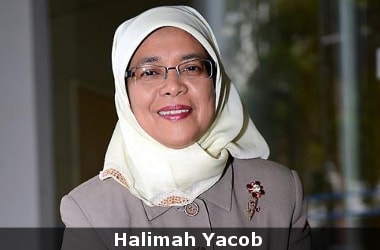
There are no Muslim Malays in the top echelons of Singapore’s army, and few among the senior ranks of its judiciary, but a member of its poorest ethnic minority is set to become the first woman President of the Southeast Asian city state.
Halimah Yacob, a former speaker of Parliament, will be formally named to the mostly ceremonial post on Wednesday, media reported, after other candidates fell short of the criteria set for contesting the election.
Ms. Yacob (63) was born to an Indian Muslim father and a Malay mother.
Aiming to strengthen a sense of inclusivity in the multicultural country, Singapore had decreed the presidency would be reserved for candidates from the Malay community this time.
Ms. Yacob’s experience as house speaker automatically qualified her under the nomination rules.
Of the four other applicants, two were not Malays and two were not given certificates of eligibility, the elections department said.
The last Malay to hold the presidency was Yusof Ishak, whose image adorns the country’s banknotes.
Yusof Ishak was President between 1965 and 1970, the first years of Singapore’s independence following a short-lived union with neighbouring Malaysia, but executive power lay with Lee Kuan Yew, the country’s first Prime Minister.
The separation of Singapore from Malaysia gave ethnic Malays a clear majority in Malaysia, while ethnic Chinese formed the majority in independent Singapore.
Leaders of both countries, however, recognised that peace and prosperity depended on preserving harmony between the two groups.
But living in a Muslim-dominated neighbourhood, with Malaysia and Indonesia next door, Singapore’s leaders have long worried about the risk of conflicted loyalties among Malays.
For Lee Hsien Loong, is now Prime Minister, the answer to social cohesion lay in creating a culture of meritocracy, rather than adopting policies of positive discrimination to boost the chances of advancement for Singapore’s Malay and Indian minorities.
Singapore’s economic success and education policies have helped swell the ranks of middle-class Malays, but the last census in 2010 showed they lagged other ethnic groups on socio-economic measures such as household incomes and home ownership.
Malays, who form just over 13 per cent of Singapore’s 3.9 million citizens and permanent residents, also underperform on measures such as university and secondary school education.